Don’t snooze on getting enough sleep
Studies suggest that good sleep habits can boost mood and GPA while limiting weight gain
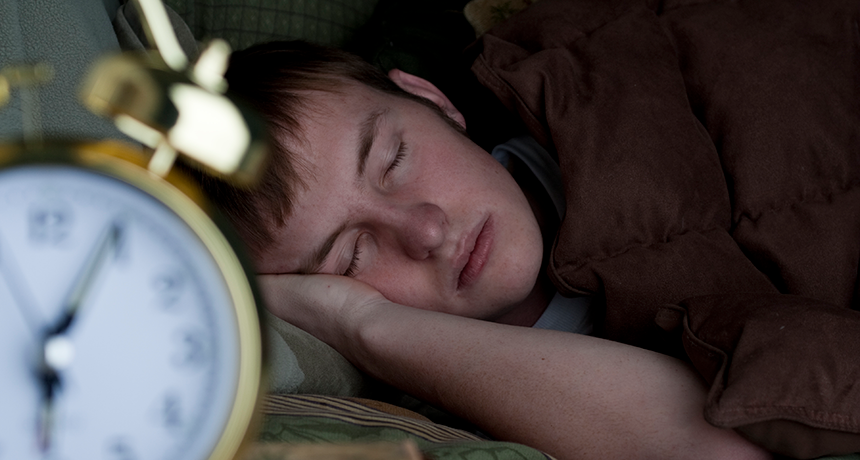
Teens need between 8 and 10 hours of sleep each night, although most don’t get it.
grandriver/E+/Getty Images
If you’re yawning today, you’re not alone. Both teens and adults struggle to get enough sleep. It’s largely because we live such busy lives: School, homework, after-school activities, jobs and hanging out with friends — all compete for our time. We end up staying up later or waking earlier just so we can squeeze a little bit more into our already crowded days.
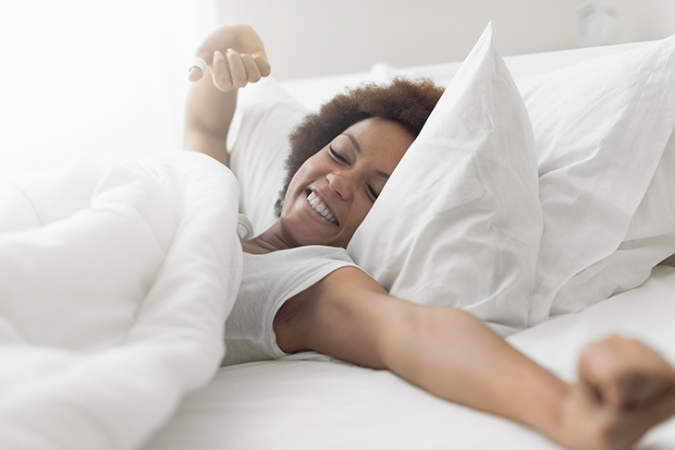
But sleep is essential in many ways. Indeed, when we skimp on sleep, our bodies and minds suffer. For instance, during sleep your body releases hormones that help repair damaged cells. Other hormones alter the way your body uses the energy in food. Your immune system uses sleep as a time to ramp up its fighting of infections or how it responds to a recent vaccine. Your snoozing brain processes what you learned during the day, helping to create lasting memories and knowledge. And sleep-induced changes in blood pressure and breathing patterns can help keep your heart strong.
No wonder we feel so good when we’re well rested.
Scientists are still working to understand all the ways that sleep keeps us healthy. They have found that teens who get more sleep tend to eat a better diet and maintain a healthy weight. Getting enough sleep is linked to better grades and mental health. Yet new data show that napping — though tempting — may not be the best way to make up for lost sleep.
Early to bed, early to rise
Researchers have known for years that people who sleep more tend to weigh less. Those people also tend to eat healthier and to be more active. Does that mean sleep itself keeps people from gaining weight? Or is sleep just one more good habit of people with healthy lifestyles?
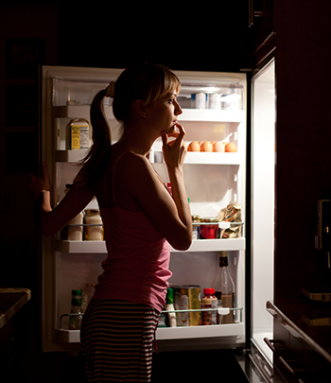
Back in 2013, Carol Maher was part of a team at the University of South Australia in Adelaide that decided to investigate this. Maher is an expert on sleep and activity patterns. Her group recruited 2,200 students between the ages of 9 and 16 to report all of their activities over the course of four days. They also logged when they went to sleep, when they woke up and what they ate and drank.
Scientists used the food report to calculate how many calories each person ate. The team also measured everyone’s height and weight. This was used to calculate each recruit’s body mass index, or BMI. BMI is one tool scientists use to assess whether someone is under- or overweight.
Sleep habits fell into four different groups, Maher’s team found. Some kids went to bed early and got up early. Some tucked into bed early and got up late; they got the most sleep. A third group went to bed late and got up early. They slept least. A final group went to bed late and got up late.
The kids who slept least had a higher BMI than those in the other groups. And those who had slept most had the lowest BMI, meaning they tended to be slimmer. The findings matched those from other studies — that people who more sleep more tend to weigh less.
This still doesn’t show that sleep differences caused weight differences. But in this study, the research team discovered one more curious result. The two groups that got a medium amount of sleep each night consumed the same number of calories. Yet those who had gone to bed late had a much higher BMI. What might explain that?
Perhaps it came from late-night snacking, Maher thought. Students who went to bed late, she notes, ate more foods that were low in nutrients and high in fat, sugar and salt. Even though the food they ate added up to the same number of calories as kids who went to bed early, the type and timing of those calories might have made a difference.
Fatigue “makes people crave more fatty and sugary foods,” Maher observes. It’s something that’s been measured in other research. So it’s possible that getting less sleep — or waiting until late at night to get that sleep — leads to poorer food choices.
Night-owl teens also tend to be less active. In a related study, “we found that participants who went to bed late got nearly an hour of extra screen time per day,” Maher says. When teens are gaming, they’re sitting. That means they’re burning fewer calories than their more active peers
Overall, getting less sleep may lead people to take in more energy and burn off less, says Yaqoot Fatima. This likely happens because of changes to hormones, she says. Two hormones, in particular, help control our desire to eat. Fatima is an epidemiologist at James Cook University in Mount Isa, Australia. She also studies the link between sleep and body weight.
Leptin makes us feel full and reduces how much we eat, Fatima explains. A second hormone, ghrelin (GREH-lin), makes us want to eat. “Overall, sleep deprivation leads to an alteration in the levels of these hormones,” she says. “That, in turn, affects the energy balance . . . and leads to weight gain.”
Elizabeth Cespedes Feliciano at Kaiser Permanente in Oakland, Calif., led a new study that supports this. Her team found that teen girls who prefer to go to bed late were at higher risk of gaining body fat. Girls whose sleep schedules shifted later on the weekends also were at higher risk of obesity. Those two things go together. Girls who prefer to go to bed late do so on weekends. On school days, however, they have to shift their body clock to match school wake times. (Boys, interestingly, did not show a similar link between sleep times and weight.) Feliciano’s group described its findings September 16 in JAMA Pediatrics.
Overweight and obesity are linked to all kinds of health problems. People who are overweight are at risk of type 2 diabetes, allergies, high blood pressure (and heart disease), stroke, cancer and more. Getting a good night’s sleep — and going to bed early — could help prevent many such health problems down the line.
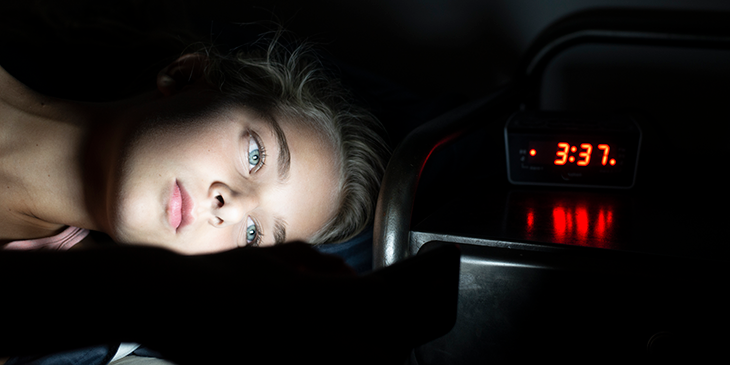
Can’t have it all
It seems that getting enough sleep can help improve physical health. Does it also improve mental health? It can certainly feel that way. Waking well-rested usually means having a clear head. We feel good and can pay attention better. Getting too little sleep can make it difficult to concentrate. People can feel anxious and stressed when they haven’t been sleeping well.
Researchers know that getting enough sleep is generally helpful. But more sleep isn’t always better, says Andrew Fuligni. He’s a psychologist at the University of California, Los Angeles. Too much sleep (more than 11 hours a night) can be a sign of poor mental health, he says. It also can be linked to poor grades.
Fuligni wanted to know how much sleep was “just right” for both mental health and learning.
To find out, he teamed up with two other UCLA researchers and Nancy Gonzales. She’s a psychologist at Arizona State University in Tempe. For their 2017 study, the team worked with 421 Mexican-American kids in ninth and tenth grades.

Educators and Parents, Sign Up for The Cheat Sheet
Weekly updates to help you use Science News Explores in the learning environment
Thank you for signing up!
There was a problem signing you up.
Each night over a two-week period, the students filled out diary checklists. They logged how much sleep they got. They also recorded how they were feeling overall. At the end of the school year, the researchers got each student’s grades and standardized-test scores. They used the grades to calculate each student’s grade point average, or GPA. And they repeated the study one year later with the 341 students who chose to do it a second time.
Students with the best GPAs got 7.5 hours of sleep each night, they found. But students felt the best when they averaged 8.75 hours of sleep per night. These kids had the least stress and anxiety. They also felt pretty good about themselves. Teens had poorer mental health if they got far less sleep than this — or much more.
“High-achieving kids make sacrifices in sleep,” Fuligni says. To get those high GPAs, many skimp on sleep. But, he adds, “There’s not necessarily a huge payoff.” That lost hour of sleep may be tied to a slight increase in GPA. But, he notes, it can come at a cost to mental health.
Total hours of sleep wasn’t the only thing affecting how these teens felt. Some study participants slept very late on the weekends to make up for lost sleep. These teens actually suffered more, the team found. They had poorer mental health than teens who consistently slept the same amount throughout the week.
When we change the amount of sleep we get from day to day, it shifts our circadian (Sur-KAY-dee-un) rhythm, Fuligni says. This is the body’s natural 24-hour clock. “Psychological well-being is driven by circadian rhythm,” he explains. Many teens sleep until noon on the weekend after getting up at 6:00 a.m. during the school week. This is like flying from California to New York and back again every week, Fuligni says. “The body is constantly jet-lagged.”
Catching up on Zzzz’s
When people don’t get enough sleep at night, they may end up napping during the day. This isn’t always healthy, says Karen Jakubowski. She’s a psychologist at the University of Pittsburgh in Pennsylvania.
Jakubowski used data from 236 high school students for a 2017 study. She mined those data from an earlier study. Teens had filled out sleep diaries each morning and evening for one week during the school year. They also wore special watches that measured their activity. These “actigraphs” recorded whether they were moving or inactive and for how long. This told the researchers how much time the students actually slept.
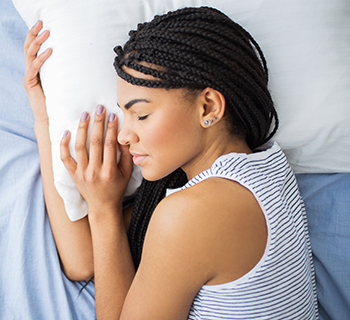
The earlier study looked at sleep and health. Jakubowski looked instead for any link between nighttime sleep and napping. The teens averaged only 6.5 hours of sleep each night. Those who got less sleep were more likely to take a nap the next day. A whopping 89 percent of teens napped at least once during the week, usually on school days. Those naps lasted from 60 to almost 180 minutes. Less sleep at night led to longer daytime naps.
But did napping help the teens get enough sleep overall? Not really, Jakubowski says. After a nap, her team found, teens went to bed later and slept less that night. That set them up to be even more tired the next day. “There seems to be a cycle of poor sleep at night and napping,” she says.
That’s not to say that napping can’t be helpful. Short naps have been shown to boost memory and attention in adults. “It’s the duration of the nap that really matters,” Jakubowski concludes. Those helpful naps were quick — usually less than 30 minutes long.
Similar studies haven’t been done in teens. But Jakubowski suspects that when they really need it, students might be helped, too, by a brief nap here or there.
Teens experience a biological shift in their sleep rhythms, Jakubowski points out. The changing hormones of puberty naturally lead teens to feel tired later. And texting and other social media can keep them up late into the night. Yet they still have to get up early for school. A brief nap might help teens get through the day. It’s a short-term fix for someone who’s not getting good sleep, she says. However, she cautions, “Over the long term, a pattern of frequent napping may get in the way of getting good sleep at night.”
Rather than relying on naps, she says people can — and should — try to improve their nighttime sleep. Jakubowski recommends taking 30 to 60 minutes to wind down before bed. During that time, “Put your phone away and avoid blue light from computers,” she says. Do relaxing activities that will help your brain and body prepare for sleep. And don’t keep your phone with you at night. Notifications can wake you up.
The most important thing, Fuligni says, is to stick to a steady sleep schedule. “The body is very attuned to habits,” he says. When people get in the habit of sleeping at the same time each night, they fall asleep faster and sleep better. In the end, your body and mind can reap big dividends.







